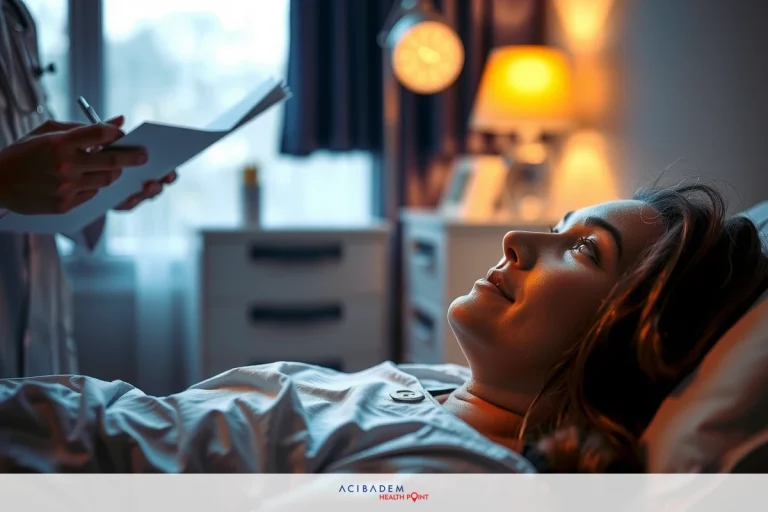How Long After Rhinoplasty Can You Get Revision
How Long After Rhinoplasty Can You Get Revision Rhinoplasty, a form of facial enhancement via nose structure modification, often witnesses patients considering revision. This secondary intervention seeks to refine or correct outcomes from previous surgery. The timing for such an endeavor is critical and multifaceted, involving many considerations.
The recovery period post-rhinoplasty plays a pivotal role in determining the feasibility of revision. Each individual’s healing trajectory can vary greatly — some might observe satisfactory progress within weeks; others may require months for swelling to subside and final results to surface clearly.
Beyond mere physical recuperation, decision-making factors extend into realms of expectations versus reality and professional medical advice. Striking a balance between patient aspirations and expert opinions forms an integral part of this journey towards potential nasal refinement through revision rhinoplasty.
Recovery Period
The recovery period after rhinoplasty is a crucial phase, one that necessitates careful navigation. It sets the stage for any possible revision surgery and is also an integral part of the timing decision process. The healing timeline varies from individual to individual; some patients might experience faster recuperation while others may require extended timeframes. In this context, “recovery” doesn’t only denote physical healing but encapsulates emotional and psychological adaptation as well.
Delving deeper into post-operative recovery specifics, it’s essential to note that immediate results following rhinoplasty are rarely final or indicative of long-term outcomes. Swelling and bruising are common occurrences during the initial days and weeks post-surgery which can obscure true aesthetic results. As these symptoms subside over time – usually within few months but sometimes even up to a year – a more accurate picture of surgical success emerges.
While monitoring progress in this recovery period, considerations about potential revision surface naturally for many patients desiring further refinement or corrections necessitated by unexpected complications. However, rushing into another surgery without allowing adequate time for complete recovery could adversely affect outcomes and potentially exacerbate existing issues. A prudent approach involves waiting until full resolution of swelling, stabilization of nasal structures, and attainment of optimal health state before contemplating additional intervention via revision rhinoplasty.
Factors Influencing Timing
Determining the timing for revision rhinoplasty involves a nuanced interplay of multiple factors. Beyond the obvious physical recovery aspect, there exist several other elements that can significantly impact this decision-making process. These include healing progress, patient expectations, surgical outcomes and professional medical advice.
Healing progress is an individualized journey; its pace and trajectory vary widely across different patients undergoing rhinoplasty. It’s not merely about visible changes but also encompasses internal healing – stabilization of nasal structures post-surgery and resolution of subtle swelling deep within tissues. This often-unseen yet vital component plays a significant role in determining readiness for any potential revision surgery.
Patient expectations versus surgical outcomes form another critical factor influencing timing decisions for revision procedures. Rhinoplasty is as much an art as it’s science even with meticulous planning and execution, results might not entirely align with initial aspirations sometimes due to unforeseen circumstances or complications encountered during surgery. In such scenarios where dissatisfaction arises from unmet expectations rather than

technical errors or complications, it becomes important to thoroughly evaluate these aspects before rushing into a repeat procedure.
The third key determinant revolves around professional medical advice which should ideally form the backbone of any decision related to additional interventions like revision rhinoplasty. Surgeons possess specialized knowledge and experience enabling them to provide personalized guidance on optimal timelines based on individual recovery status, risk assessment and realistic outcome predictions.
Consulting Your Surgeon
In the journey towards potential revision rhinoplasty, consulting your surgeon emerges as a pivotal step. This dialogue is more than just an exchange of medical facts; it’s a collaborative exploration aimed at achieving optimal outcomes through informed decision-making. An experienced surgeon provides invaluable insights based on their professional expertise, nuanced understanding of individual healing processes and realistic assessment of outcome possibilities.
The original surgeon often holds the most comprehensive knowledge about specific patient circumstances – from initial nasal anatomy and surgical alterations made during primary rhinoplasty to post-operative recovery progress and any complications encountered along the way. This holistic view helps them guide patients effectively regarding timing for revision procedures. For instance, if minimal adjustments are required or minor complications need addressing, they might recommend an earlier intervention while extensive modifications could necessitate longer waiting durations.
However, consultation isn’t restricted solely to the original surgeon; seeking second opinions can offer fresh perspectives especially in complex situations where dissatisfaction stems from unmet expectations rather than clear-cut technical errors or complications. Qualified specialists with proven experience in revision rhinoplasty can provide alternative viewpoints that may enrich the decision-making process by providing different approaches or solutions previously unconsidered. Ultimately, this consultative phase reinforces patient empowerment – enabling individuals to make well-informed decisions about their own bodies guided by expert advice.
Frequently Asked Questions
How soon after rhinoplasty can I consider getting a revision surgery?
The timeline varies based on your individual recovery pace, the nature of complications or dissatisfaction, and surgeon's advice. Generally, it is advisable to wait until complete healing has occurred and final surgical outcomes are apparent.
What factors should influence my decision for timing of revision rhinoplasty?
Several aspects play into this decision - your physical healing progress post- rhinoplasty, alignment between surgical outcomes and initial expectations, potential risks associated with another surgery and professional medical opinion from your original surgeon or second opinions if sought.
Can I consult a different specialist for my revision procedure?
Yes. While your original surgeon possesses comprehensive understanding about specifics of your case which could be beneficial in guiding you regarding timing decisions for possible revisions, seeking alternative viewpoints especially in complex situations can provide fresh insights.
Could rushing into a revision surgery adversely affect the outcomes?
Absolutely. Premature interventions before complete resolution of swelling or stabilization of nasal structures might lead to sub-optimal results or even exacerbate existing issues. It's crucial to allow adequate time for full recovery before contemplating additional procedures.











